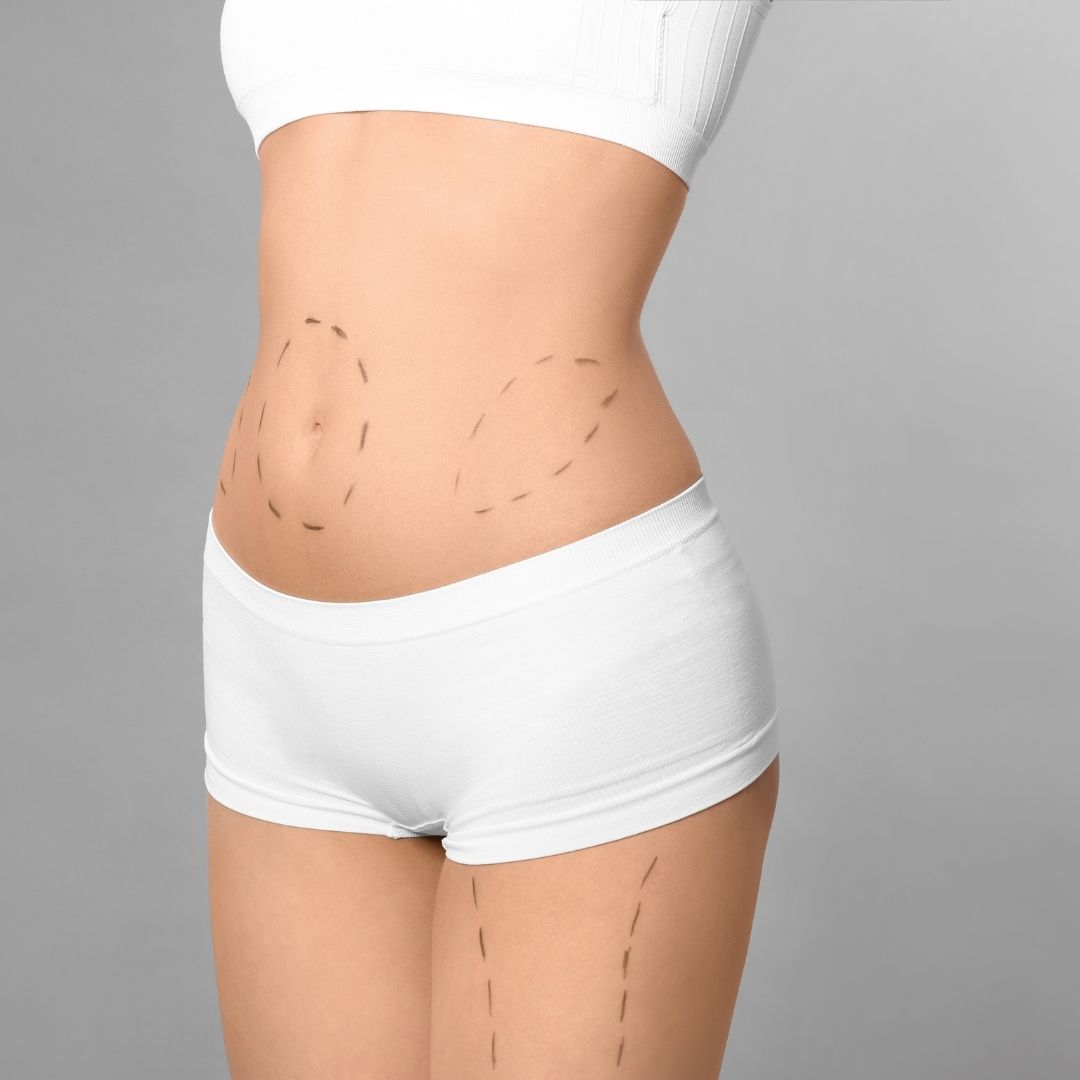
BMI for Liposuction
Body mass index (BMI) is a commonly used measurement to determine whether an individual is at a healthy weight for their height. It is often used by health care providers as a screening tool to find out if there are any possible health risks that come with being overweight or obese. However, when it comes to liposuction, BMI is a factor that can affect the success and safety of the procedure.
Liposuction is a type of cosmetic surgery that removes fat from areas of the body like the stomach, thighs, and hips. It is not a weight-loss procedure and should not be used as a substitute for a healthy diet and exercise routine. In fact, most plastic surgeons recommend that liposuction candidates be close to their ideal weight and have a stable BMI.
To figure out a person’s BMI, you divide their weight in kilograms by the square of their height in meters. The number that comes out is then compared to standard BMI categories, which include underweight, normal weight, overweight, and obese. People with a BMI of 30 or more are usually considered obese, and liposuction might not be safe for them.
There are several reasons why having a high BMI can make liposuction more dangerous. First, excess fat can increase the amount of tissue that needs to be removed, which can lead to more significant bleeding during the procedure. Second, people with a high BMI may have bigger health problems, like high blood pressure, diabetes, or heart disease, that can make surgery more dangerous. Finally, patients with a high BMI may not have the same skin elasticity as those with a lower BMI, which can affect the results of the procedure and lead to uneven or sagging skin.
But it’s important to remember that BMI isn’t the only thing plastic surgeons look at when deciding if a patient is a good candidate for liposuction. Other factors, such as overall health, lifestyle habits, and medical history, can also play a role in determining whether a patient is a good candidate for the procedure.
In the end, BMI is one of the most important things that plastic surgeons look at when deciding if a patient is a good candidate for liposuction. Even though having a high BMI can make the procedure more dangerous, it is not the only thing that determines if a patient is a good candidate. If you are thinking about getting liposuction, you should talk to a board-certified plastic surgeon to find out if the procedure is right for you based on your needs and situation.
What Is Body Mass Index (BMI)?
The Body Mass Index (BMI) is a common way to tell if someone is underweight, normal weight, overweight, or obese. It is found by dividing a person’s weight in kilograms by the square of their height in meters.
BMI provides a quick and easy way to estimate body fat levels, and it has been used as a screening tool for various health conditions such as diabetes, heart disease, and high blood pressure. However, it is important to note that BMI is not a perfect measure of body fatness and should not be used in isolation to make any medical diagnosis.
The BMI is classified into four categories:
Underweight: BMI less than 18.5
Normal weight: BMI between 18.5 and 24.9
Overweight: BMI between 25 and 29.9
Obese: BMI 30 or greater
It is important to note that BMI is not accurate for everyone, especially athletes or individuals with high muscle mass. In these situations, other methods, like measuring the thickness of a skinfold or the bioelectrical impedance, maybe more accurate.
It is also important to remember that BMI does not take into account other factors that can influence an individual’s health, such as age, sex, bone density, and muscle mass. So, it’s important to talk to a doctor or nurse to get a full picture of your health.
In conclusion, BMI is a good way to figure out how much body fat you have and what health risks might come from being underweight, overweight, or obese. But it shouldn’t be used on its own to make a medical diagnosis, and you should talk to a doctor or nurse to get an accurate picture of your overall health.
How to Calculate BMI for Liposuction?
Calculating body mass index (BMI) is a straightforward process. To calculate your BMI, you need to know your weight in kilograms and your height in meters. The formula for calculating BMI is the weight (in kilograms) divided by the height (in meters) squared. For example, if your weight is 70 kilograms and your height is 1.75 meters, your BMI would be calculated as follows: 70 / (1.75 x 1.75) = 22.9.
Once you know your BMI, you can use the BMI categories to figure out if you are underweight, normal weight, overweight, or obese. Remember, while BMI can be a useful tool, it should be used in conjunction with other measures to assess your overall health. Talking to a doctor or nurse is always the best way to get a full picture of your health.
Maximum BMI for Liposuction
When it comes to liposuction, the maximum BMI for the procedure can vary depending on the individual’s health and other factors. For safe and effective results, most plastic surgeons prefer that their patients have a BMI of 30 or less. But some plastic surgeons may take a patient’s BMI into account on a case-by-case basis.
Liposuction is a surgical procedure that removes fat from places like the abdomen, hips, thighs, and arms where there is too much of it. The procedure can help shape the body and make the treated area look better. However, it is not a weight-loss procedure, and patients should not expect significant weight loss as a result of the surgery.
Patients with a higher BMI may have more serious health risks from the procedure, such as a higher chance of problems like bleeding, infection, and blood clots. Additionally, patients with a high BMI may not have the same skin elasticity as those with a lower BMI, which can This can be done by eating well and working out so that the BMI is stable and healthy before the surgery.
Minimum BMI for Liposuction
Liposuction is a common type of cosmetic surgery that is used to get rid of fat from different parts of the body. It is a safe and effective way to achieve a more sculpted and toned appearance. However, not everyone is an ideal candidate for liposuction in Turkey, and there are certain requirements that must be met before the procedure can be performed.
The body mass index (BMI) is one of the most important ways to tell if someone is a good candidate for liposuction. BMI for liposuction is a measure of body fat based on height and weight. People with a BMI of 30 or higher are usually considered obese, and liposuction is not a good idea for them. In fact, many plastic surgeons have a minimum BMI requirement of 30 for liposuction.
The Study of BMI for Liposuction
A comprehensive study published in the “Journal of Plastic and Reconstructive Surgery” in 2019 analyzed the relationship between BMI and the safety and efficacy of liposuction procedures. The study involved a large sample of patients who underwent liposuction for various body contouring purposes. Researchers found that patients with a BMI within the range of 18.5 to 29.9 had the lowest risk of complications and the best cosmetic outcomes, including improved contour and minimal postoperative issues.
The study emphasizes that a BMI above 30 is associated with a higher risk of complications, including bleeding, infection, and uneven results. Therefore, a maximum BMI of 30 or less is generally recommended for safe and effective liposuction. However, the study also highlights that a patient’s overall health and individual factors should be considered, and the BMI requirement might be flexible in some cases.
It’s essential for potential liposuction candidates to consult with a board-certified plastic surgeon to assess their suitability for the procedure based on their specific needs, health, and BMI.
What Should My Body Mass Index Be?
Your ideal body mass index (BMI) depends on various factors such as your age, height, gender, and muscle mass. Generally, a BMI between 18.5 and 24.9 is considered healthy for most adults. However, if you are an athlete or have a higher muscle mass, your BMI may be higher than the normal range but you can still be healthy. On the other hand, if your BMI is above 25, it indicates that you may be overweight, while a BMI of 30 or more indicates obesity. It is important to note that BMI is just one tool to assess your health, and it is always recommended to consult a healthcare professional for personalized advice.




